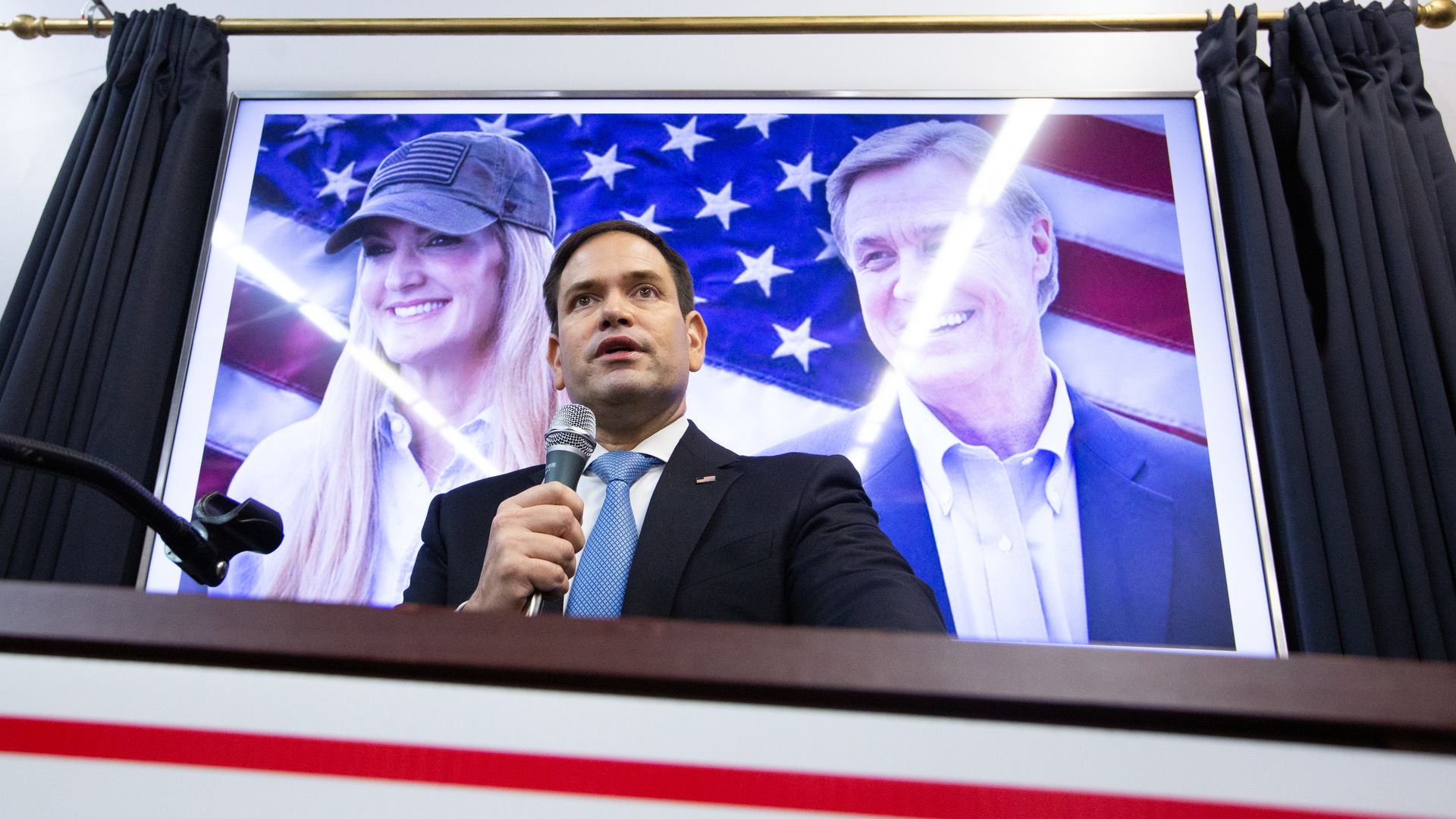Dec 29, 2020 - Politics & Policy
Senate tide begins to shift toward $2,000 checks after Trump's push
Add Axios as your preferred source to
see more of our stories on Google.

Sen. Marco Rubio campaigning for Sens. Kelly Loeffler and David Perdue in Georgia. Photo: Jessica McGowan/Getty Images

